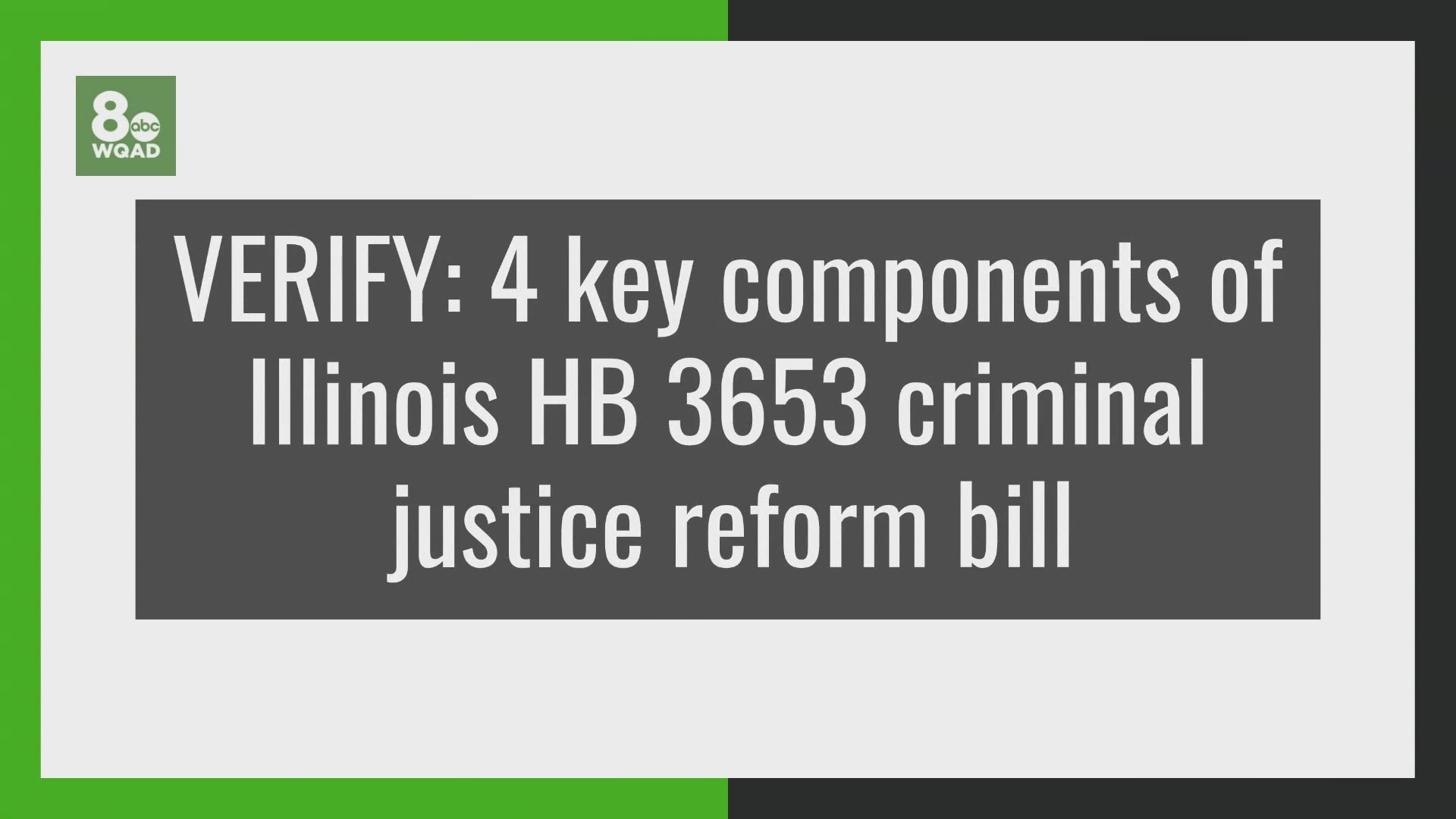ILLINOIS, USA — A criminal justice reform bill was passed in the Illinois House and Senate in January to both strong support and opposition.
Illinois House Bill 3653 was introduced and passed in the early morning hours of Jan. 13, 2021. Several lawmakers expressed frustration at how quickly the lengthy bill was introduced before being voted on.
The bill was sent to Gov. J.B. Pritzker on Feb. 4, who is expected to sign it into law. Learn more about the status of the bill here.
What is it?
HB 3653 titled "An ACT concerning criminal law" includes 99 Articles spanning 764 pages of policy intended to implement reforms on policing in Illinois and the state's criminal justice system.
Given the length of the text we broke down four main components of the bill:
Bail
Under HB 3653, cash bail is set to be abolished by Jan. 1, 2023. Conditions of pretrial release are determined by the court and the bill does not include monetary bail as an option.
Exceptions that allow for cash bail are largely based on agreements between Illinois and other states.
Offenders can still be denied pretrial release depending on charges or if the defendant is determined to pose a threat or is a high flight risk.

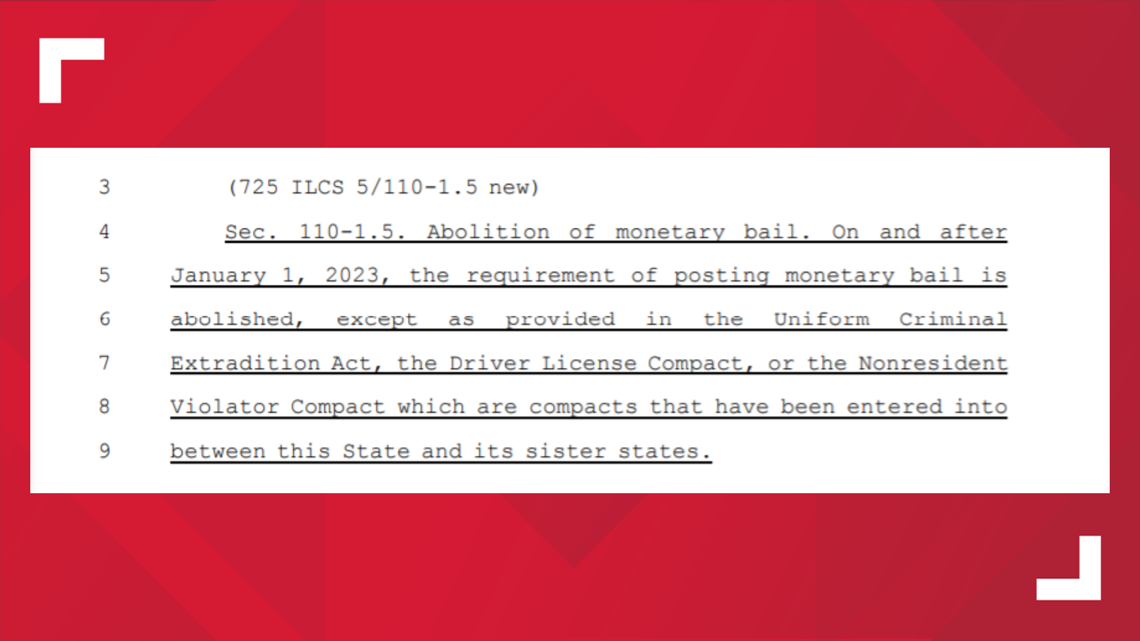
Body Cameras
All law enforcement officers will be required to use body cameras by 2025.
Officers at every law enforcement agency in the state must wear a body camera while on-duty. Depending on the size of the population departments serve, police departments have until Jan. 1, 2025 to outfit each of their officers with body cameras.

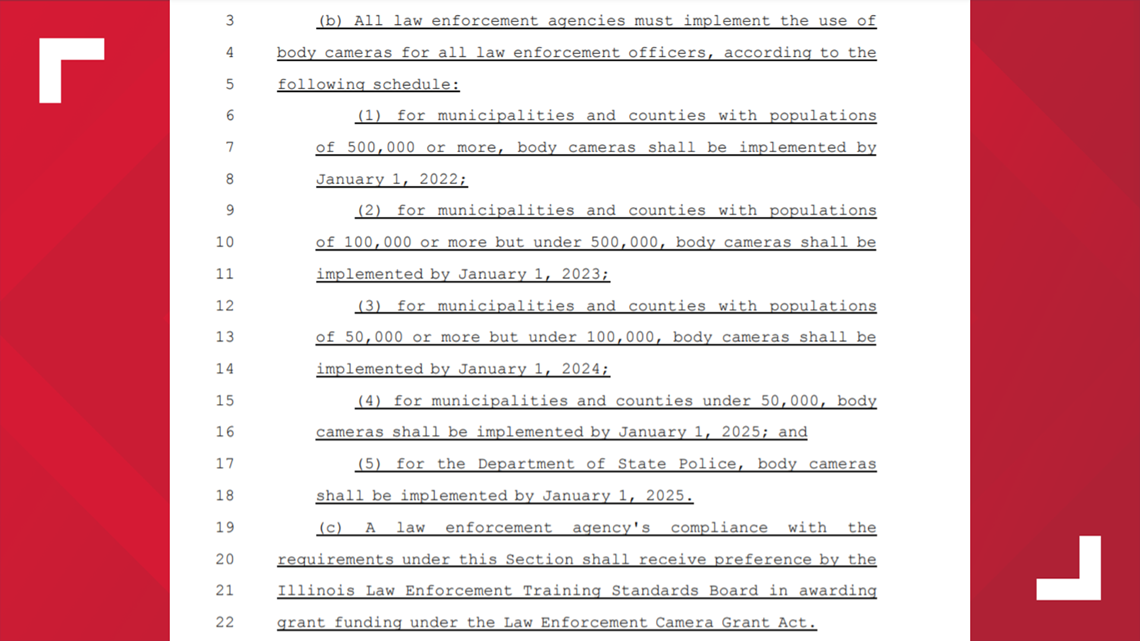
An officer's body camera must be on at all times, but there are some exceptions when it can be turned off.
Notably, officer's must turn off a camera if a community member who wants to report a crime or the victim or witness of a crime asks for the camera to be turned off.
Officers must continue recording, however, if they suspect a crime is being committed.
Departments are also required to store all body camera recordings for a minimum of 90 days. After that time period, recordings must be destroyed unless they're used for training purposes. If a recording is flagged, due to a complaint or use of force, it must be kept for a minimum of two years.
Training
All police officers across the state would be required to complete crisis intervention training.
Under the bill, officers would complete at least 30 hours of retraining every three years encompassing skills and tactics, de-escalation techniques, laws regulating the use of force and how to use force that is "necessary and proportional under the totality of circumstances."
HB 3653 requires crisis intervention training to be a collaboration between law enforcement professionals, mental health providers, families and consumer advocates and must include a heightened focus on how to recognize and respond to those with mental illness.

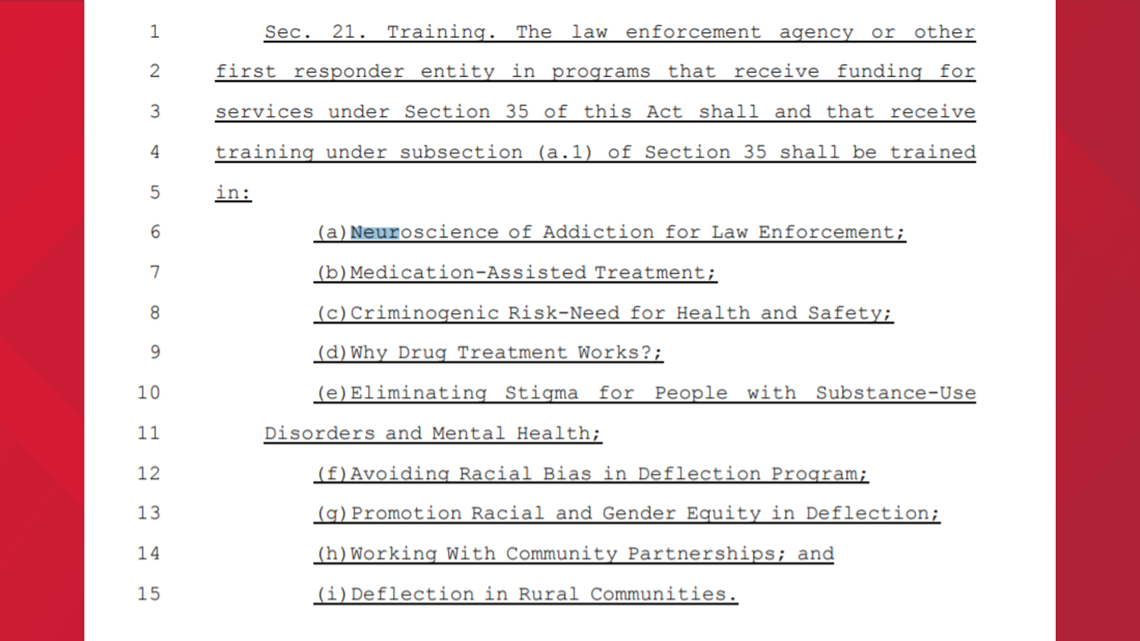
Law enforcement agencies that receive funding from the Illinois Criminal Justice Information Authority must include training in:
neuroscience of addiction for law enforcement
medication-assisted treatment
criminogenic risk-need for health and safety
why drug treatment works
eliminating the stigma for people with substance use disorders and mental health
avoiding racial bias in deflection program (deflection is loosely defined as diverting those with mental health problems out of the criminal justice system into community based treatment programs)
promotion of racial and gender equity in deflection
working with community partnerships
deflection in rural communities
Use of Force
HB 3653 scales back existing Illinois law allowing the use of force. The bill requires officer's to consider "the totality of circumstances" in all uses of force.
"The authority to use physical force conferred on peace officers... is a serious responsibility that shall be exercised judiciously and with respect for human rights and dignity for the sanctity of every human life."

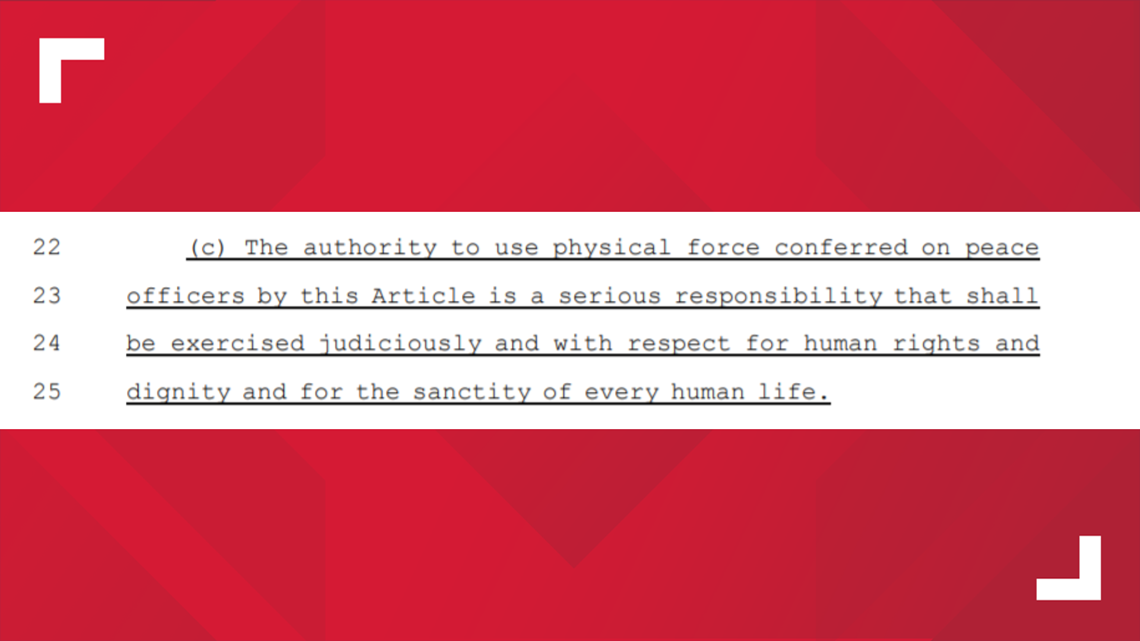
Requirements:
- Police will be prohibited from targeting the head, pelvis and back with kinetic impact projectiles (rubber or plastic bullets) as well as from firing into crowds. Pepper spray and tear gas are also not allowed to be used under the bill without giving citizens time to comply with an overt order to disperse.
- Officers are not allowed to use force to prevent the escape of suspects unless police believe they won't be able to be arrested on a later date or if there is a risk to others.
- Use of force is prohibited against those who are in danger of harming themselves, if that person is not a threat to others. Officers are also not allowed to use deadly force against those suspected of committing a property offense.
- Police also now have a duty to administer aid if someone is injured due to the use of force.
- Officers are required to stop a fellow officer when excessive force is being used or when "any constitutional violation has been committed."
- Chokeholds are largely prohibited.

